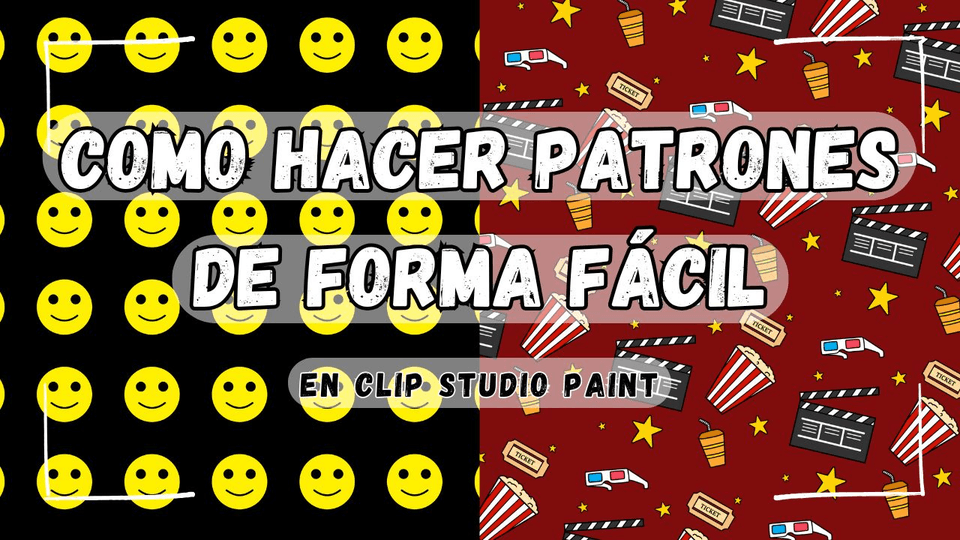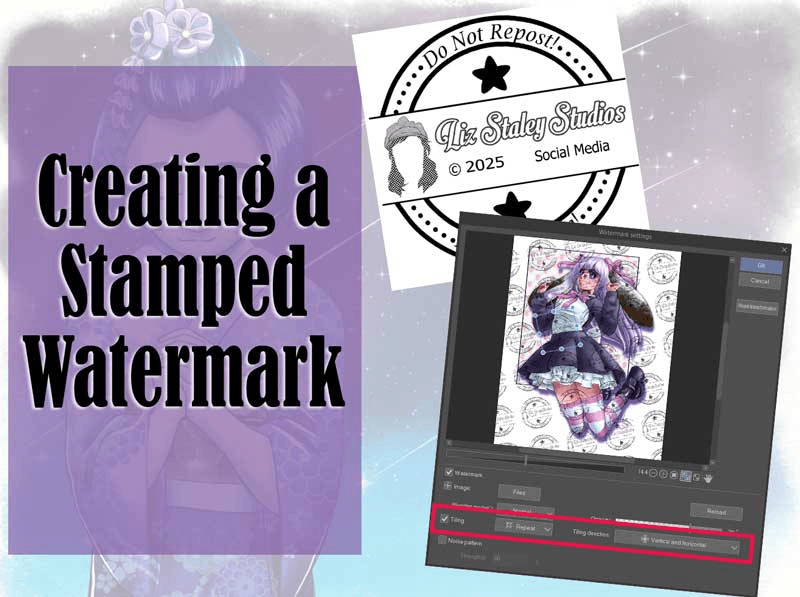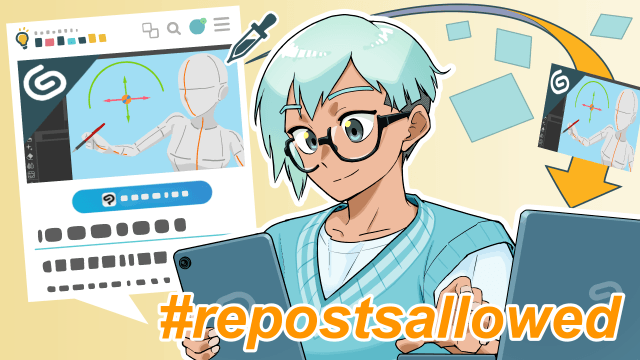How I like to animate in CSP

Introduction
Today I'm gonna show you how I like to animate in CSP.
This 2 second animation took me around 3 hours to complete.
For some reference:
Most highlights, shadows and editing can be quickly done in an editing program such as After Effects to automate and make the process faster.
However, I will be exclusively using Clip Studio Paint EX for everything; sketching, animating, colouring, effects and compositing.
Settings
I like to use Clip Studio’s default 1920x1080 canvas, 24 frames per second.
The first thing is to delete the default raster layer and replace it with a vector layer, this makes sketching much cleaner, easier and less messy.
You can do this by clicking the bin icon and deleting it that way.
Vector layers will have a picture of a cube.
The reason you want to use the vector layer is because of the eraser settings and the ability to change pen stroke size and colour.
The eraser has 3 settings
1. Erasing touched area
2. Erase up to intersection
3. Erase whole line.
I like to use 3 to erase whole lines to make my sketches look more clean I find it more easy to line my animation.
Rough Animation
I gonna animate a simple scene of a girl reaching out for something as the wind blows.
Next I am creating a new animation folder to sketch out the hair.
I also like to rename the folder so i can easily find layers later on. I called this layer 'Hair'.
To make a new animation folder, it will be a tiny folder above the timeline that has a + sign.
I like to use a different colour like red, blue or green so I can distinguish the layers more properly.
I am also keeping track of how many hair strands there are, so here I drew 8. I want to keep this as consistent as possible so some scenes have 5 and others have like 10.
I like to go back to the previous frames as reference.
I animate on 4s, so frame 0, 4, 8, 12…… This will be the main frames.
When I animate the main frames, I add the in between, this will be on frames 2, 6, 10 …..
The reason I only animate on 2s is so the animation frame rate stays consistent, so some parts don't look smoother and some parts look choppier.
After I created the mains and in between, i realise the animation looked a little off so I added an extra frame to help with the timing.
You want to animate as little as possible so I suggest reusing frames. I usually go in reverse order, this saves so much time and you're pretty much only animating half of the animation.
If you want the animation to loop, then use your 2nd frame as your last frame.
Here is the one without the Extra Frame.

Here is the one with the Extra Frame.

To be honest I actually can't tell the difference because it's too subtle.
I wanted to drag out cell 3 and 3a.
But moving on.
After I’m happy with it I start to animate the next thing.
Again I create a new animation folder and renamed it to 'Eyes'.
Replaced the raster layer with a vector and start to sketch the eyes and eyebrow.
There wont be any animation so 1 sketch is enough.
Then I move onto the clothes.
I have 3 main frames and 2 in-betweens for this as it's not necessary to make more.

Now that's the sketch complete.
I make a folder and call it ‘Rough’ and I place all the sketches into it.
This is to make my files easier to manage.
Lining the Animation
Now we get onto Lining the animation, I find this part to be the longest part of animating.
You are tracing all of your Rough layers to clean them up.
I animate in layers so
-Hair
--Hair Highlight
--Hair Shadow
-Face
-Clothes
--Clothes Highlight
-- Clothes Shadow
-Base
--Base Shadow
I like to use Turnip Pen as it has the same line thickness and tapers a little at the end.
I like to use these setting for lining my animation.

This is the Rough with the Lined animation together.

When everything is cleaned up, its time to move onto the colouring.
Colouring the Animation
Create a new Animation folder and use the default animation cell layer, this is called the Raster layer.
This folder will be called 'XXX CLR'.
To paint the animation, I use the Fill bucket on 'Refer to other layers' setting
Back onto the line animation, it's still red but I what it to be white for the highlights. You can change the whole folder property and covert the colour to whatever you want.
I convert the main red colour to white you don't want to get rid of it because it keeps the line sharp and crispy, if you get rid of it then it’ll look ugly.
I do this to all of the layers that have shadow or highlight folders.

Now this is the colouring complete.
Background and Colour grading
So I wanted her to be standing in the sunset, so I created a simple background with clouds.

So she looks kind of out of place in the scene as it looks like she's standing in a normal room, but I want her too look like she's bathing in the sunset.
Camera animation
I want to add a pan to the animation.
So on the ‘Animation’ on to i click it and go to ‘New Animation Layer’ and click ‘2D camera folder’
This creates a 2D Camera where you can move your animation.
You grab all of you files and plop them into the 2D camera folder
I like to work in ‘Show field guide’ as a reference on how the final might look.
Then switch to ‘Show camera’s field of view’ to see how the final view looks
Here on operation on object mode i move the light blue rectangle, this automatically creates a keyframe. I place it on the left so that it will pan to the right.
Or there is a easier way where you can change the whole folder's layer colour.
Exporting
Then that's it!
Time for export.
You want to go to 'File' --> 'Export animation' --> 'Movie'
I export in 1920x1080, 24fps.
Then that's it, you have an animation.

I hope you found this tutorial helpful!
You can find me here!
https://www.instagram.com/kialiaofficial/
YouTube
https://www.youtube.com/channel/UC3mIPQDlwL9aEaAhA81dN3Q
Here is the unedited version if you'd like to watch it in real time.
























Comment